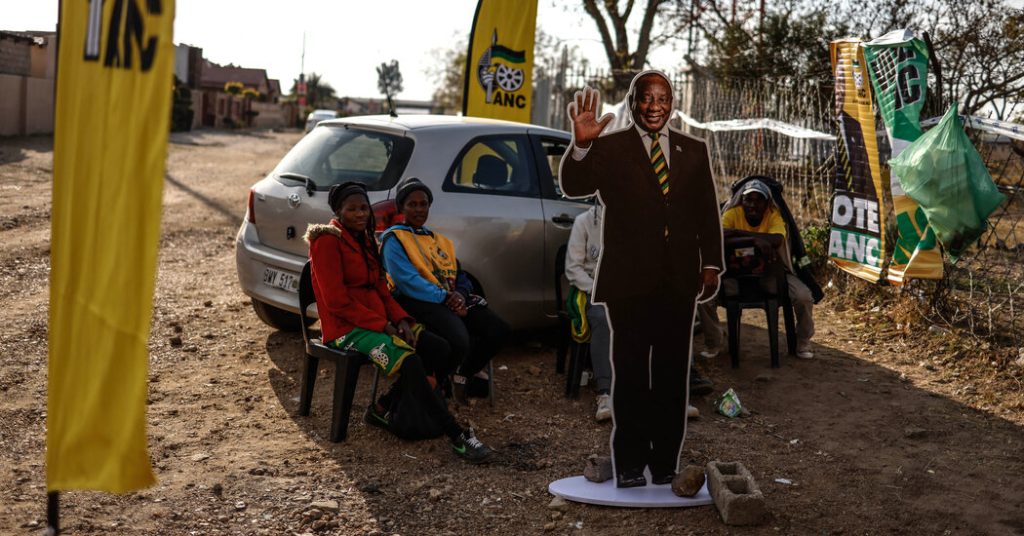In a watershed election in South Africa, the African National Congress (A.N.C.), once led by Nelson Mandela, failed to win an outright majority of the votes for the first time since the end of apartheid in 1994. The A.N.C. received only 41 percent of the vote in the latest election, down from 57 percent in the previous one. This significant drop in support has cost the party its majority in Parliament, forcing it to work with smaller opposition parties. Many voters, including the Mathivha family, have grown exasperated with the A.N.C., which they perceive as arrogant and corrupt.
Buhle and Khathu Mathivha, residents of Johannesburg, decided not to vote for the A.N.C., breaking with their family tradition. They are part of a large cohort of registered voters in their 30s and 40s who have become disillusioned with the party. Born after apartheid, this generation has experienced the highs and lows of post-apartheid South Africa and now questions the A.N.C.’s ability to govern effectively. The Mathivhas, who work in banking and tech, live in an affluent neighborhood that lacks basic services and safety due to power cuts and rising crime rates.
The Mathivhas have lost faith in the public education system and are budgeting for private school for their 3-year-old son. They have also been victims of a burglary in their home and struggle with the lack of streetlights and safety in their area. Concerns over crime and public safety influenced their decision to vote for the Patriotic Alliance, a party led by a businessman who promises to be tough on crime and has experience in local government. Despite their frustrations with the A.N.C., they are also wary of the instability that may come with coalition governments in the future.
While the A.N.C. remains the leading party in South Africa, other smaller parties, such as the Democratic Alliance and the Economic Freedom Fighters, are gaining support among voters who are dissatisfied with the current political landscape. The couple’s concern about the potential influence of the Economic Freedom Fighters, led by Julius Malema, and their radical policy proposals, such as nationalizing the central bank, adds to their unease about the future of the country. They also watch with concern as the uMkhonto we Sizwe party, led by former A.N.C. president Jacob Zuma, gains traction among voters.
Despite the political changes and uncertainties in South Africa’s recent election, one thing remains clear: the A.N.C. has been humbled by the voices of voters like the Mathivhas who have expressed their disillusionment with the party. As the country navigates a new political landscape with a more diverse range of parties and shifting alliances, the Mathivhas, like many other voting-aged South Africans, are hopeful for a better future but remain cautious about the challenges that lie ahead. The results of this election have signaled a turning point in South Africa’s political history and have sparked discussions about the country’s future trajectory.








